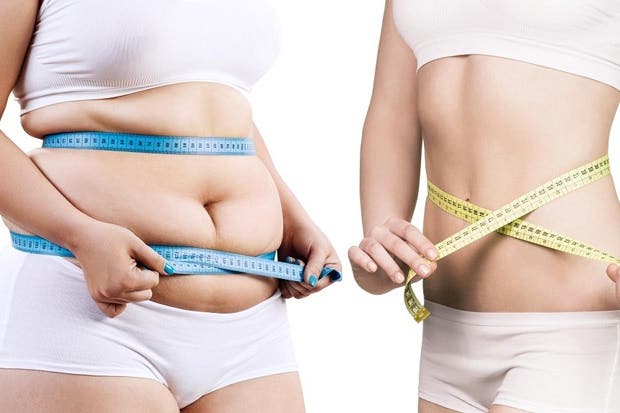Expert offers tips to boost self-confidence and learn to love your body this summer
Don’t let swimsuit anxiety keep you from making memories with loved ones. Be self-confident and make it a priority to love your body.

[June 18, 2021: Brianna Volz]
Summer is pretty much endless in the Sunshine State, which is why it’s not uncommon to find people sporting bathing suits year-round in Florida.
With that being the case, it’s important that people feel comfortable wearing one, according to Ilene Leshinsky, the founder and creator of Find Body Freedom, a program for women who want to change their relationship with their bodies. And even more than just how they feel in a swimsuit, Leshinsky says they should make it a priority to love their bodies. Leshinsky grew up struggling to feel confident and knows how much those insecurities affected her overall life, which is why she has since dedicated her life to teaching people, women especially, to love the skin they’re in.
“I grew up a fat girl. And that left its mark on me. And for many, many years, I did not wear a bathing suit. And as a result of all of my work on myself, I decided that I would make it my mission to help women get more comfortable wearing bathing suits, just being in their bodies as comfortably as they possibly could,” Leshinsky said.
For nearly three decades, Leshinsky has practiced as a psychotherapist and body image specialist in New York, Massachusetts, and other areas online throughout the United States. She works with women of all ages who want to love their bodies and eat with joy.
For some it’s easy to understand why they should love their body and be proud of all it accomplishes daily but for many, actually loving their body is easier said than done. After all, if it were actually as easy as just saying “I love my body,” why would anyone choose to wrestle with insecurities?
But it is possible, according to Leshinsky. Through her program and publications, she shares powerful stories and offers some simple tips to help women start making changes that will lead to higher self-confidence.
Below are a few suggestions she makes to her clients that she says have the potential to be life-changing:
1. Stop only looking on the outside
Leshinsky said if you only take the time to see yourself from the outside, you’re missing some of the best parts of who you truly are and what your body has to offer.
“If we are looking just at our outside self, it’s not going to happen. It’s just not going to happen. So one of the things that has been my mission for a long, long, long time now, is to have people look at not the body as an ornament, but the body as this miraculous vehicle that takes us through our lives, that allows us to do the stuff of our daily lives. All of the magic it does for us every single day is something to love,” she said.
Leshinsky isn’t recommending you stop looking at your exterior completely but encourages people to remember that when they are looking at their body parts, try not to see them for just how you think they look, but appreciate those parts for what they allow you to do.
“I can look at myself and say, ‘Oh, Ilene, you have great hair, you have a lovely smile, Ilene, your hands are lovely.’ I can look at even my belly as I’ve aged, and it’s gotten rounder and say, ‘Oh, you’re kind of cute,’” Leshinsky said. “So I talk to my body parts. And I thank them, I bless them. And we have conversations about all of the things that they do. I mean, what would I do if I didn’t have my legs, to go for a power walk, you know, every day with my husband, and be able to go and look at the ocean and just this beautiful environment in which I live?”
She also wants people to remember some of the bests parts of who we are as individuals can only be found on the inside, so make an effort to really look inside and appreciate those things, too.
“If we are really noting our gifts and talents, which are not written on our faces, which are not housed on the outside of our bodies, but are in our brains and in our soul, that really have us wanting to do wonders in the world. And if we are allowing these gifts to flow through us, it’s a whole lot easier to really love your body, because your body is not just the outside, it’s all of it,” Leshinsky said.
2. Take a break from social media
According to Leshinsky, women, throughout history, have been programmed to compare themselves to other women. And the exposure to what society deems “the ideal woman” has increased significantly in recent years through new means of advertising, especially through social media.
“We’re just in a culture that has a very narrow container for what is deemed ideal beauty, shape and size for women. So most of us, the vast majority of women, are not going to fit into that container. And so we feel less than, we feel that because we don’t look like the fashion models or when you open up a magazine or you watch TV, we don’t look like those people in the advertisements that ‘I can’t possibly go out in public, in shorts, in a bathing suit in a tank top,’ whatever it is, the summer attire, that makes people uncomfortable. So it’s partly because of that sociocultural container,” Leshinsky said.
She reminds her clients that the people you see in advertisements are often airbrushed or that their photos have been enhanced in some other way, and that anyone can look a certain way with some editing.
And even if the photos aren’t touched up, just because someone looks “skinny” or “fit” or their skin appears to be clearer than yours, doesn’t mean that person is healthy.
She said the same logic can be applied to the argument some make that using “plus-size” models promotes unhealthy lifestyles.
“I have to say to you, the people who are critics of this inclusiveness in body shapes and sizes, I get so angry ... because you cannot -- and I’m not the only one who says this -- and there are people in the medical community who will say, you cannot look at someone and say they’re healthy,” Leshinsky said. “There could be this thin woman standing next to me and we don’t know if she has an eating disorder. There can be this larger body type standing on the other side of me and all of her lab works are perfect. She’s within normal range. And she exercises every day.”
She applauds companies who are being more inclusive in their advertisements by using models of all shapes, sizes and colors, and is also a fan of social media influencers who share what she calls their “perfect imperfections.”
“Those of us who are willing to talk about our flaws, show our flaws are helpful, because these are people who get a lot of press, they’re out there. And they’re saying, ‘Hey, I, too, am not perfect. I, too, have my insecurities. I, too, have cellulite, and, you know, baby rolls, and all of those things that we women don’t want others to see.’ And they’re saying, ‘Look, here I am.’ And personally, I love it. I love it. And I think it has a tremendously powerful, positive impact on body positivity,” she said. “I also think on the flip side of that, social media has -- I have issues with how so much is photoshopped to airbrushed, you know, just how you can take a selfie. And what you can do with it makes me a little uncomfortable.”
Since social media can be both helpful and harmful, she recommends you take time to think about how you feel when you’re on the apps. If you find yourself comparing yourself to someone you see on social media or elsewhere, limit your exposure.
She said she asks clients to start by taking a few weeks off from social media and again pay attention to how they feel when they’re not using it. Oftentimes, she said her clients report that they’re feeling better about themselves because they’re not comparing themselves to others as often.
3. Be kind to your body
We have the potential to be our own worst enemy when it comes to body image because we can be such harsh critics. That’s why Leshinksy says we need to focus more on being kind to ourselves, using words of affirmation instead of making statements that don’t help build confidence.
“We’ve got to stop the talk, the negative self-talk because what it does is it lays down negative neuropathways in the brain and the more we say these negative things to ourselves about our bodies, about ourselves in any way, the more we are going down that same negative neuropathway and it becomes more and more and more entrenched, and we have to stop it and start a new pathway,” Leshinsky said.
She said if you find yourself saying negative things about your body, stop, apologize to it and either reframe the statement to make it positive or point out something you like about yourself.
Try compliments, like, “My hair looks nice today,” or “Wow, I have a great smile.”
Like these kind of feel good stories? Get the Brighter Side of News' newsletter.
Tags: #Good_News, #Body_Image, #Exercise, #Positivity, #The_Brighter_Side_of_News
Joseph Shavit
Head Science News Writer | Communicating Innovation & Discovery
Based in Los Angeles, Joseph Shavit is an accomplished science journalist, head science news writer and co-founder at The Brighter Side of News, where he translates cutting-edge discoveries into compelling stories for a broad audience. With a strong background spanning science, business, product management, media leadership, and entrepreneurship, Joseph brings a unique perspective to science communication. His expertise allows him to uncover the intersection of technological advancements and market potential, shedding light on how groundbreaking research evolves into transformative products and industries.



